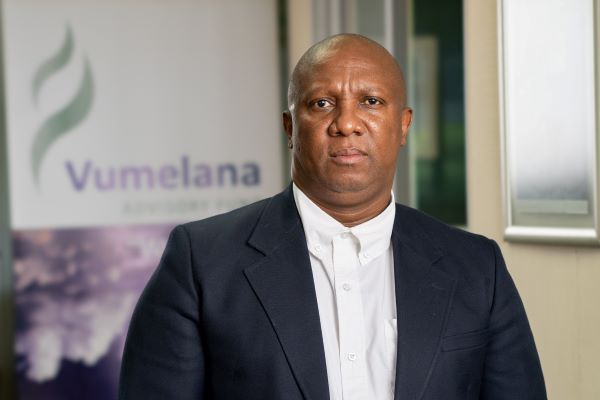Every year, on 21 March 1960, South Africa remembers the 69 people killed, and hundreds more injured, in Sharpeville when police opened fire on a crowd as they protested the repressive pass laws.
Now called Human Rights Day, 21 March, focuses a spotlight on the need to continue the struggle for human rights and the ceaseless struggle of those seeking justice and dignity for being forcibly removed from their land by racially discriminatory laws.
Though it is generally accepted that those who died that fateful day were protesting the repressive laws restricting freedom of movement, at the heart of the protest was the systematic dehumanisation of black African people who were dispossessed of their land and forced to work in the cities for a pittance and live in squalor in the townships.
The promulgation of the notorious Land Act of 1913 was the final step that stripped black people of land ownership and vested overwhelming tracts of land to the white minority. Many communities that were on the receiving end of forced removals from their ancestral land are still waiting for this historical injustice to be redressed.
Faced with increasing levels of poverty, which has been worsened by the outbreak of COVID-19 and a weak economy, many communities see land ownership as the means to mitigate against growing levels of poverty and a means to create economic opportunities.
Rising poverty levels
Figures released by Statistics SA paint a harrowing picture of rising levels of poverty and a surge in the number of households facing hunger. In a revised white paper on families published last year, the Department of Social Development said that while poverty levels improved between 2005 and 2011, they have since then stagnated and worsened – citing data collected from Home Affairs, Statistics South Africa and other government sources.
In the 2021 Revised White Paper on Families in South Africa, gazetted by the Department of Social Development, “Statistics South Africa reported an improvement between 2006 and 2011 when poverty levels, measured by the lower-bound poverty line, reduced from 66.6% to 53.2% of the South African population. However, by 2015 the poverty rate had started to increase again up to 55.5%. This increase in poverty rates also affects the depth of poverty which improved between 2006 and 2015 but worsened again post-2015.”
As we commemorate Human Rights Day, we need to be mindful that the commemoration of this day sounds hollow to millions of people who daily face hunger, remain landless with their property rights yet to be acknowledged.
How land ownership can be leveraged to alleviate poverty
Land ownership and rights is integral to human rights. In the face of increasing levels of poverty, land ownership could offer a much-needed reprieve to millions of people and proof to be a viable asset that can enhance entrepreneurship, a way to be included in the mainstream economy and a source of food and income for millions of landless people.
Over and above this, land rights restores the dignity of those who live with an ongoing deprivation and recognises the dignity of a people who had their humanity and sense of self-worth systematically denied by centuries of colonialisation and decades of institutionalised racism.
Research has drawn a link between poverty alleviation and access to land. The Human Sciences Research Council suggests that poverty levels can be pushed back significantly if policies are put in place that focus on food security and creating viable pathways to prosperity for the rural poor. This would be particularly true if land reform helped people develop the means of producing food, improve the skills, generating value and employing people.
The United Nations (UN) also echoed these sentiments and noted that rural communities can utilise unused land to address poverty and stimulate growth if it is incorporated into rural value chains.
“Land is a critical asset, especially for the rural poor, because it provides a means of livelihood through the production and sale of crops and other products …Those without property rights generally lack the incentive or even the authority to make investments in the land where they live or farm that might lead to higher returns.
“In many cases, land can be used as collateral for credit to invest in the land, or be exchanged for capital to start up another income-generating activity. The landless are excluded from these opportunities, which is why they are often among the poorest. For example, data from South Asia, home to about 40% of the world’s poor, show that poverty is strongly associated with landlessness and insecure access to land,” the UN report reads.
What needs to be done to revive the land reform programme
The sluggish economy holds little prospects for creating much needed employment opportunities. So how can the land reform programme be effectively utilised and leveraged to unlock economic opportunities? What are the bottlenecks that hold back successful implementation of the land reform programme and how can these be addressed?
The land reform programme is beset with a number of challenges, as identified by the Motlanthe Report, ranging from corruption, cronyism, in-fighting, lack of capacity. In addition, the process is also crippled by a litany of other obstacles including the under-resourced state, reluctance by government officials to work with like-minded organisations, budget constraints, skepticism around private sector participation in land reform, a single approach to compensation and lack of mechanisms to assess legitimate and illegitimate claims.
For starters, little has been done to implement the recommendations of the High-Level Panel, known as the Motlanthe Report. This will go a long way towards removing the major bottlenecks that impair the speedy and successful implementation of land reform.
Secondly, training and tapping into current skilled resources in the private sector is another viable solution that will help to address the funding and skills gap. Private sector participation in the land reform programme will also help to identify and develop innovative funding methods for land reform.
Thirdly, we need a rethink about the land reform programme. There is an opportunity to think about what form equitable redress could take, as it might not just be cash compensation. There might be a whole range of other opportunities that could create a portfolio that could be attractive to people. This would entail examining how restitution was done in other countries and customising best practice for local conditions.
Vumelana Advisory Fund further advises:
- finalising old order claims and consider using the redistribution instruments to rather address new order claims;
- Identifying the right mechanisms to deal with old order claims and find ways to resolve other outstanding claims;
- Training and development to improve efficiencies in land reform, as there is currently a shortage of high-level resources;
- Providing training for restitution researchers to increase resourcing for land reform and support efforts to address the current backlog;
- Identifying innovative ways for funding for land reform given that it is anticipated there will be further government cuts on resourcing;
- Leveraging existing skills in the private sector to address historical skills gaps as there are still gaps in resourcing in the public sector;
- Implementing the recommendations of the High-Level Panel as there is still merit in them;
- Review the current approach on restitution and compensation and explore alternative ways to compensate land reform communities; and
Support Community Private Partnerships in order to ensure a sustainable land reform programme
While some skeptics have already written the obituary of the land reform programme, we believe that social cohesion and improvement in the lives of ordinary South Africans hinges on an expedited and successful land reform programme. Failure to do so would be a betrayal of those who laid down their lives for the eradication of the brutal system of apartheid.








